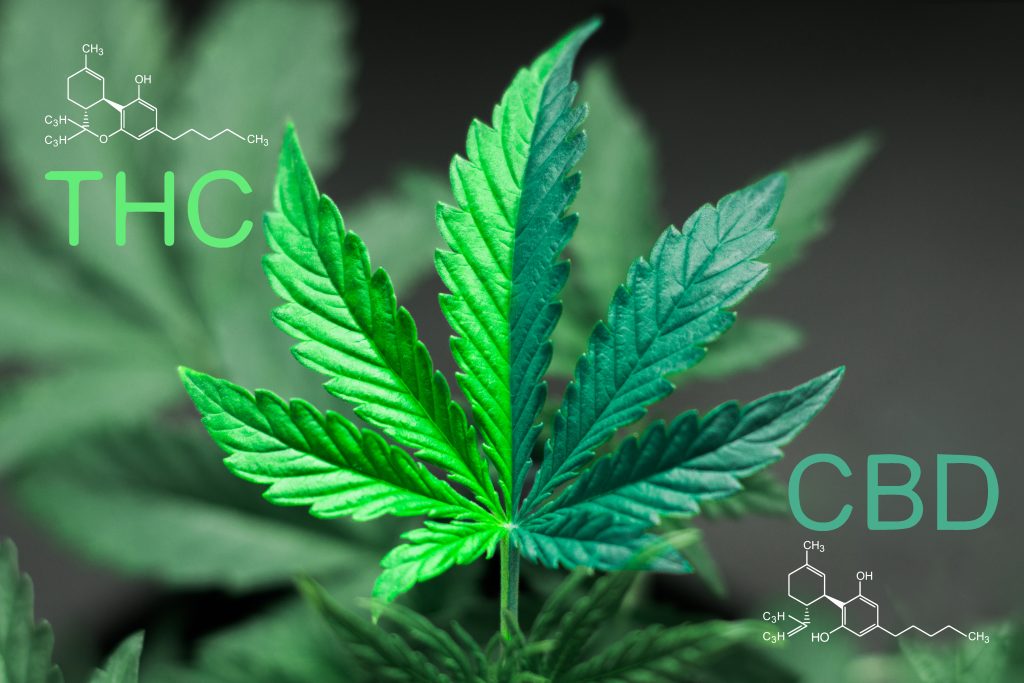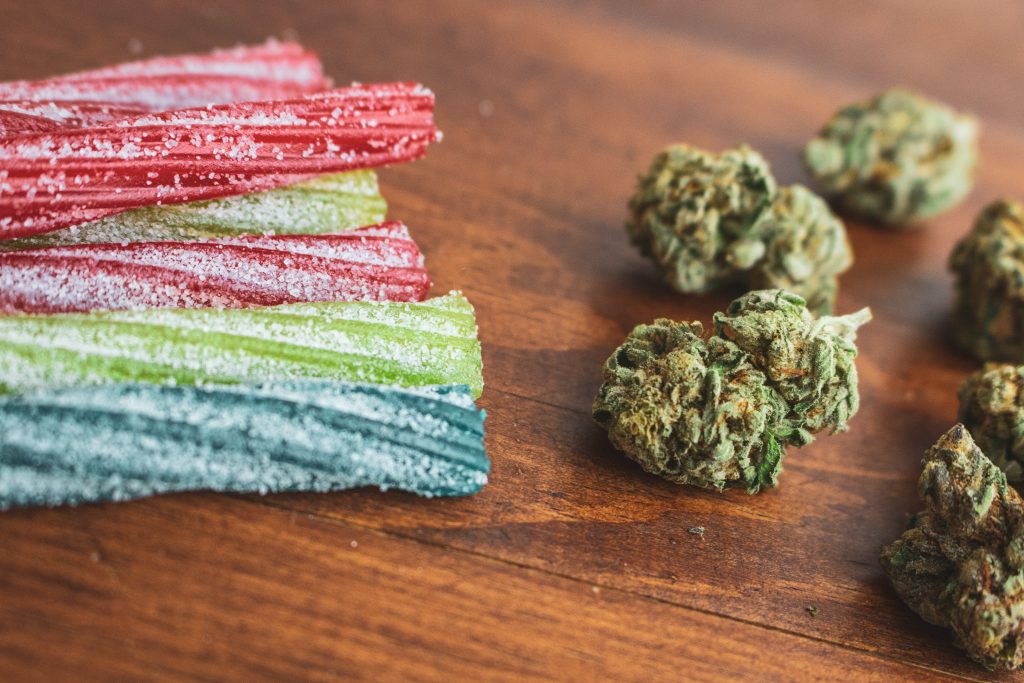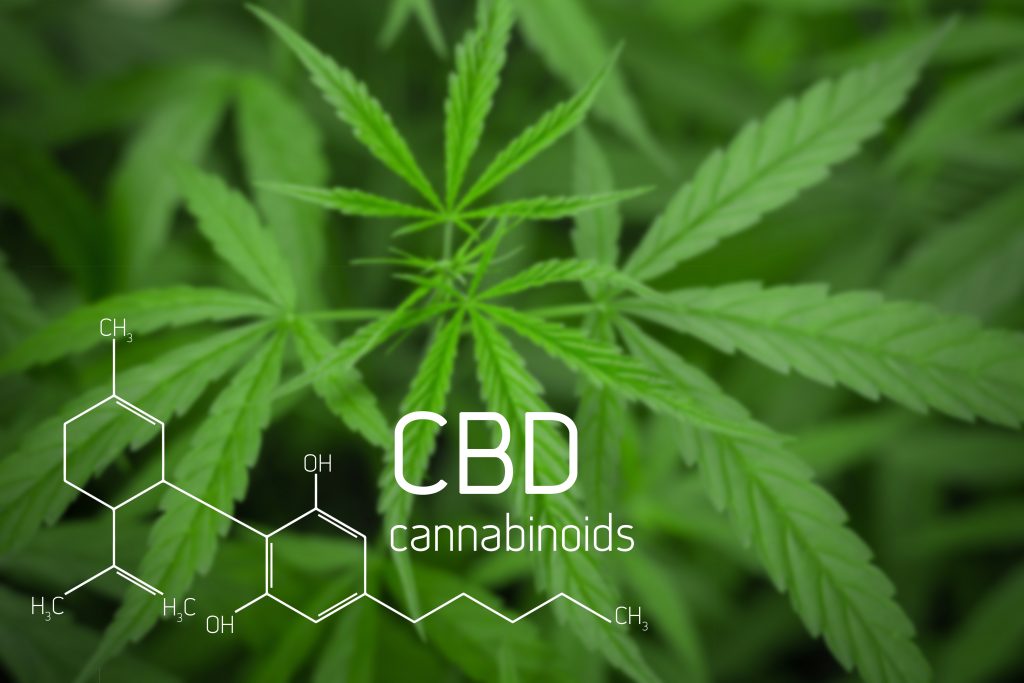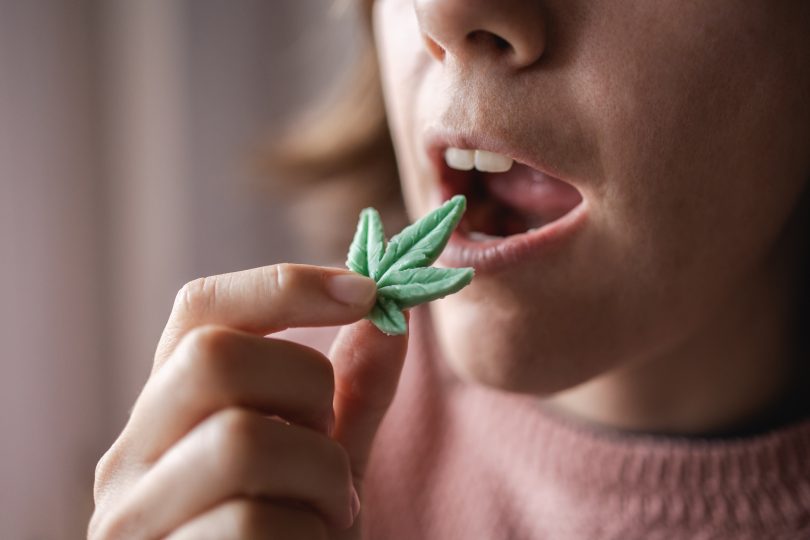Every state with legal marijuana has limits set for the amount of THC in edible products, and this makes sense. Not only do edibles take a while to kick in (allowing for time to take too much), but when THC gets metabolized, it actually becomes a stronger compound. So what about CBD? Is CBD also stronger when you eat it, like THC?
If CBD is stronger when you eat it, we don’t know about it just yet. But we know that’s the case with THC, and that means if you’re eating edibles, you’re experiencing 11-hydroxy-THC. When it comes to cannabis, there are tons of options, even outside of standard THC. Now, users can try delta-8 THC, THCV, HHC, and more. It’s a new year, and a great time to try something different, so check out our deals to get your year flying right. Remember to subscribe to The THC Weekly Newsletter all the latest news and industry stories, as well as exclusive deals on flowers, vapes, edibles, and other products. Also save big on Delta 8, Delta 9 THC, Delta-10 THC, THCO, THCV, THCP & HHC products by checking out our “Best-of” lists!
THC and CBD
Although we want to know if CBD is stronger when you eat it, it’s best to look at its half-brother delta-9 THC first. When I say half-brother, its because CBD and delta-9 share the same exact chemical formula of: C₂₁H₃₀O₂, but vary in the structure of their molecules, which provides for different effects from the two compounds. During research in the early-mid 1900’s, the difference between high-THC and low-THC cannabis wasn’t understood, or the role that CBD played, as neither had been isolated. In fact, discovering delta-9 THC was extremely difficult because scientists were often given hemp plants to work with out of confusion over where THC could be found.
CBD and delta-9 are what are called structural isomers because of the shared chemical formula. This means: “two or more organic compounds have the same molecular formulas but different structures.” There are different kinds of isomers that vary in different ways. Sometimes they are mirror opposites of each other, sometimes they are double bond stereoisomers like delta-9 and delta-8 which vary solely in the placement of a double bond, and sometimes there are other configurations as well.
Delta-9 THC is generally associated with getting high and psychoactive properties. In reality, though CBD is often considered non-psychoactive, this goes against the idea that it can be helpful with things like anxiety control and mood regulation. Though the idea of CBD causing some kind of high can be argued, it most certainly causes psychoactive effects, as those psychoactive effects are often the reason for taking CBD. This reputation of being non-psychoactive seems to be more in line with marketing campaigns used to separate CBD from THC in the minds of consumers. Or simply the confusion over what it means to be ‘high’, vs a ‘psychoactive’ effect.

THC when eaten
The whole question of whether CBD is stronger when you eat it, comes from the idea that delta-9 THC converts to a metabolite which is stronger, when its eaten. For anyone who was unaware, the type of THC that makes us high when we eat edibles, is actually a variation of the type of THC that makes us high when we smoke a joint or use a vape. This is because when delta-9 is eaten, it goes through the digestive tract and is broken down by the liver.
This breakdown converts C₂₁H₃₀O₂ (also the chemical formula for CBD, remember) into C21H30O3, also known as 11-hydroxy-THC. This slight tweak to the chemistry makes a world of difference in the THC experience. As explained by Leafly researcher Nick Jikomes:
“The real difference between edibles and smoking or vaping is that with edibles, a much larger fraction of Delta-9-THC makes it to the liver first. There it gets converted to 11-hydroxy-THC.” He goes on, “So in other words, if you smoke or vape, the ratio of 11-hydroxy-THC to Delta-9-THC is quite low, and if you take an edible it’s much higher.”
When smoked, delta-9 gets into the bloodstream through the alveoli of the lungs. As blood is water based, the THC doesn’t break down well in this way. It binds to endocannabinoid receptors instead, and isn’t metabolized by the liver in large amounts. However, when eaten it goes through the digestive tract, and binds to a glurononide compound to create 11-hydroxy-THC. This version of THC is more water soluble, and therefore better at crossing the blood-brain barrier and getting around the body. Many believe this is at least partly why 11-hydroxy-THC can seem more potent, and explains why edibles cause a different reaction.
How is 11-hydroxy-THC different? Well, for one thing, the process by which THC is metabolized, slows down the onset of effects, and it can take 1-3 hours to feel the full results. This is in contrast to a near immediate effect when smoking. The effects of smoking peak within 30-60 minutes and then peter down, whereas 11-hydroxy-THC can produce a high that lasts for 4-6+ hours before starting to fade out.
While judging potency can be a little difficult, a 1973 study compared the effects of equivalent one mg doses of delta-9 and 11-hydroxy-THC, which were given intravenously to casual smokers. It was found that 11-hydroxy produced a quicker and more intense reaction. Whether 11-hydroxy is actually more potent is hard to say, as some research points to the two compounds being comparable. Whether or not it produces stronger effects, it most certainly produces longer effects, and the feeling has been noted to be much more of a body high.

Is CBD stronger when you eat it?
All of this now brings up the question of whether CBD is also stronger when you eat it, like delta-9 THC. So to understand better, we’d need to take a look at what happens to CBD when its ingested. Truth is, there isn’t research at this point covering all aspects of the topic, which is probably why it doesn’t come up very often. Research, in the form of a systematic review, has pointed to half-life estimates for different routes of administration:
CBD in oromucosal spray produced a half-life of 1.4 – 10.9 hours, chronic oral administration made for a half-life of two–five days, IV CBD produced a half-life of 24 hours, and the average half-life for smoking it was 31 hours. Bioavailability for smoking was put around 31%, but no other administration method was investigated. It should be noted that though it doesn’t say anything about potency, oral administration also has a much longer half-life than smoking, which is similar to the elongated half-life of THC when eaten.
The main metabolite of THC when metabolized through the digestive tract, is 11-hydroxy-THC, although this exists along with tons of other metabolites that show up in smaller amounts. In terms of CBD, “Due to extensive Phase I metabolism, the pharmacokinetics of CBD is complex and the bioavailability of oral CBD is low across species. In general, the most abundant metabolites are hydroxylated 7-COOH derivatives of CBD that are excreted either intact or as glucuronide conjugates. The route of administration affects the pharmacokinetics of CBD and high intra- and intersubject variability is common in humans…”
The same study goes on to point out: “In an early study with healthy volunteers who were given 20 mg [3H]CBD by intravenous injection, 7-COOH-CBD was the most abundant metabolite in the plasma, while 7-OH-CBD was only a minor biotransformation product (in the original publication, the compounds are referred to as 11-carboxy-CBD and 11-hydroxy-CBD, respectively).”
This is interesting because 11-hydroxy-CBD is the equivalent metabolite of 11-hydroxy-THC, the stronger (or at least longer lasting) form of THC. Is this CBD metabolite also more intense, or does it provide a different effect? Is it even the reason for the longer half-life when eaten? Honestly, hard to say from what’s online. This demonstrates the still large black hole that exists in the cannabis research world.
If a comparable metabolite of delta-9 provides stronger (or at least different/longer) effects than delta-9, then wouldn’t we want to know the same about CBD metabolites? Perhaps 11-hydroxy-CBD – whether coming with different effects or not, doesn’t show up in large enough quantities to make a difference anyway. What we can see from half-lives, is that something similar must be happening with CBD as with THC, because the half-life is elongated when eaten. What this means exactly though? Jury is out.
Into the future…

I find it interesting that while we know delta-9 converts in the body to 11-hydroxy-THC, that less has been examined regarding CBD’s counterpart 11-hydroxy-CBD, or the other CBD metabolites formed. In my mind, the immediate question is, is there a different or more intense form of CBD which is created when CBD is metabolized? If so, it could provide new ways of using CBD for treatment.
While the medical world likes to seem sure of itself to consumers, when looking closely into a topic like this, it becomes clear how many black holes there are. This makes sense as research into these compounds was stymied for so long due to prohibition antics, and also makes clear the need to not create these black holes again, by keeping research veins open on topics of concern. Had research bans not been instated, we might have had the answer to this question already.
CBD might not be the cure-all it was originally touted as, but it sure does come with some great benefits. With research re-opening on these topics, we can finally start to catch up to where we should have already been. And part of that is establishing exactly what happens to CBD when ingested in different ways, and whether active metabolites are formed that can change the way we use the compound.
Conclusion
This topic does best to highlight the need for further research into the idea of whether CBD is stronger when you eat it, or when its taken in any specific way. It also highlights the need to not shut off research topics, and to always keep moving forward in terms of information collection and use.
Welcome! Thanks for joining us at CBDtesters.co, your one-stop-shop for the most important and thought-provoking cannabis and psychedelics-related news around the world. Check us out daily to stay aware of the ever-changing world of legal drugs and industrial hemp, and sign up for The THC Weekly Newsletter, to ensure you never miss a single story.
Disclaimer: Hi, I’m a researcher and writer. I’m not a doctor, lawyer, or businessperson. All information in my articles is sourced and referenced, and all opinions stated are mine. I am not giving anyone advice, and though I am more than happy to discuss topics, should someone have a further question or concern, they should seek guidance from a relevant professional.









